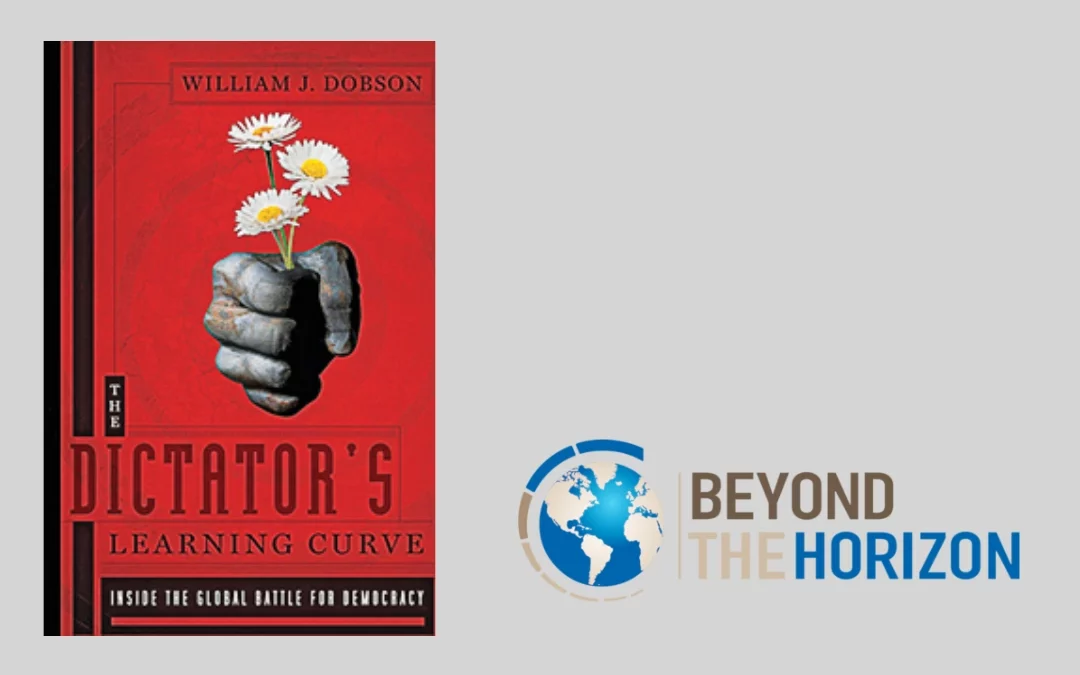Dobson’s (2012) book takes on a somewhat different task to provide us with insights from dictatorships. While the works of political scientists on this subject, such as Levitsky & Ziblatt’s How Democracies Die (2019), or John Keane’s The New Despotism (2020), explain how such regimes remain in power, this book offers insights from the lives of those who fight against dictators as well as the tactics that these regimes use in their efforts to stay in power.
In line with the recent literature, “Today’s dictator’s,” he writes, “understood that in a globalised world the more brutal forms of intimidation -mass arrests, firing squads, and violent crackdowns- are best replaced with more subtle forms of coercion” (p.5). However, also, he points out the fact that there is still hope in the following: “my optimism grew as I sat down to meet with the people who had committed themselves to fight for these freedoms” (p.293).
In the book, he relies on primary data -interviews with activists, advocates, and the people who help these regimes – that he collected from China, Egypt, Malaysia, Russia, and Venezuela. From his interviews and observations, it is clear that both dictators and those who fight against them learn and benefit from their predecessors and their counterparts. For instance, Putin, who witnessed the Soviet Union’s collapse closely as a KGB officer in East Germany, learned a great deal about how once a powerful regime might collapse. He implemented these lessons as he ascended to power. Many years later, he said, “He who does not regret the break-up of the Soviet Union has no heart; he who wants to revive it in its previous forms has no head” (p.15). The author then argues that leaders like Putin must be more creative than ever to stay in power in today’s world. They feel anxious, which leads them to grow even more anxious when dealing with their citizens. Perhaps the best word to describe their state of mood is skittish.
On the other side of the spectrum- those who fight against oppressors- the author demonstrates that they sometimes fear, but they never lose hope. They always act with a sense of purpose. They know that their enemies are always at risk of losing. This is perhaps most obvious in – a human rights lawyer from China- Pu Zhiqiang’s words “The ideology and the legitimacy of the party have already disappeared. It is naked interests. The slogans do not work anymore. They need to buy people; they need to pay them for them to do anything” (p.58). As these oppressive regimes seem to learn from one another and adopt (Morgenbesser 2020), so do people who work to topple them. For instance, those who helped topple Milosevic in Serbia helped the Orange Revolution organisers in Ukraine. As new 21st-century dictators grow more sophisticated, their rivals also constantly evolve and learn to develop the best ways to end such leaders’ unjust rule.
The author’s conversations with both sides indicate no guarantee that even the most brutal regimes will remain in power. Nor, for people who are fighting against such regimes, will be successful. However, this book reminds us that governing people in the 21st century is becoming more complicated than ever as tools available to dissidents are becoming less expensive and more accessible to everyone. Cognizant of these risks, leaders of countries like Russia, and China are updating their learning curve day by day. Nonetheless, as no dictatorship has managed to survive in humankind’s history, the new regimes that now seem to be taking the world by storm will surely come to an end. It does not mean, however, that it is just a matter of time before these governments collapse. Instead, it should be a motivation for our collective fight against autocrats.
References
Dobson, W.J. 2012. The dictator’s learning curve: Inside the global battle for democracy. Random House.
Keane, J. 2020. The New Despotism. Harvard University Press.
Levitsky, S. and D. Ziblatt. 2018. How Democracies Die. New York: Broadway Books.
Morgenbesser, L. 2020. ‘The menu of autocratic innovation.’ Democratization: 1-20.

